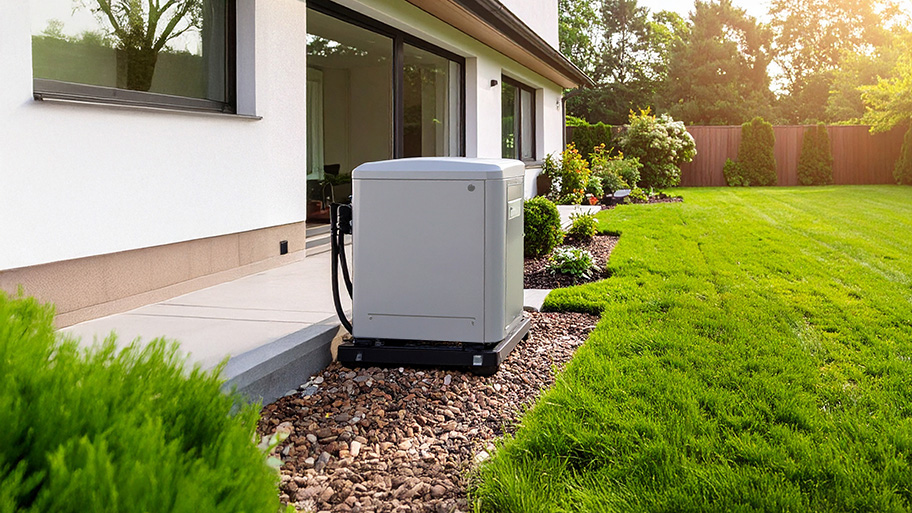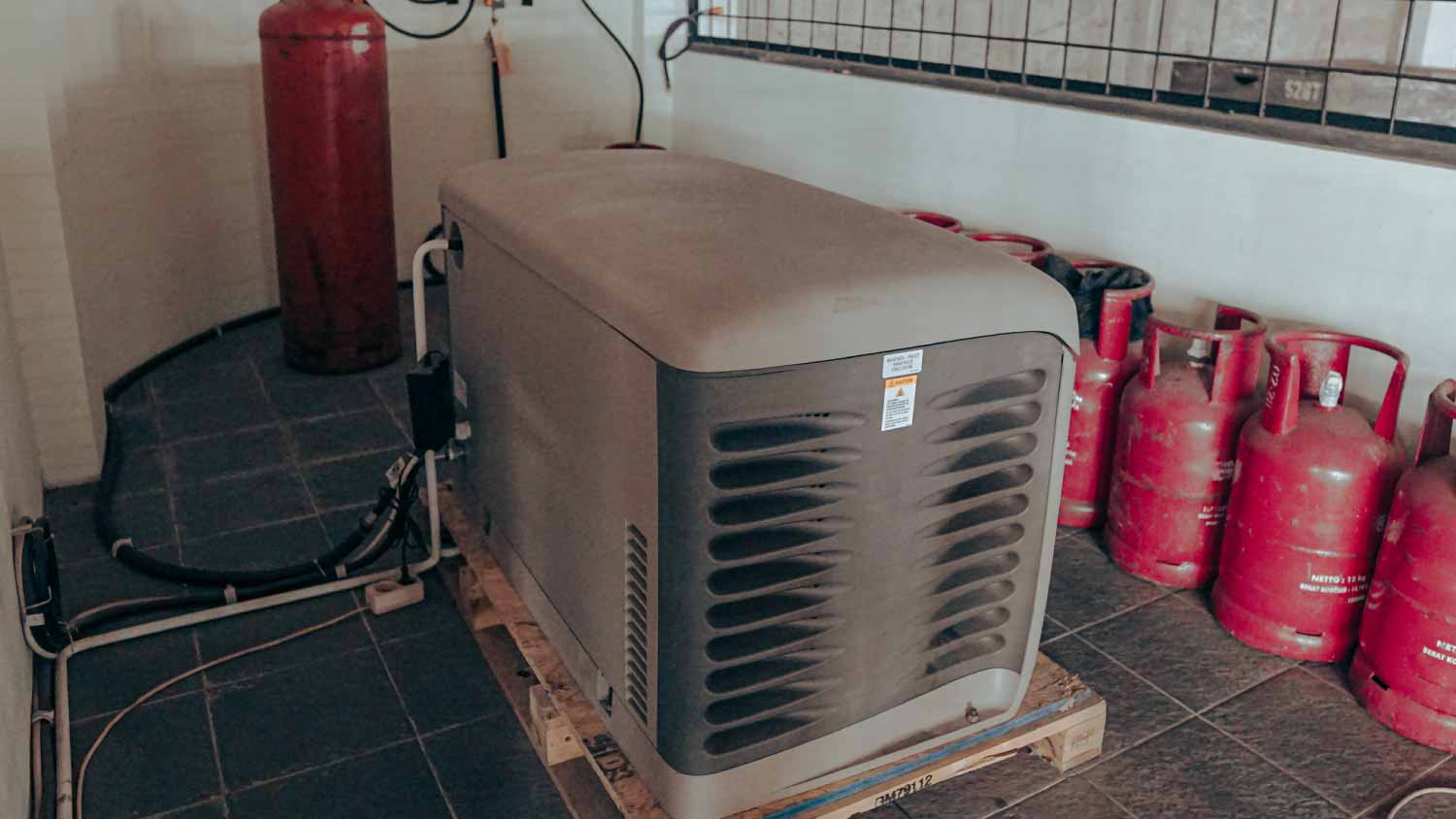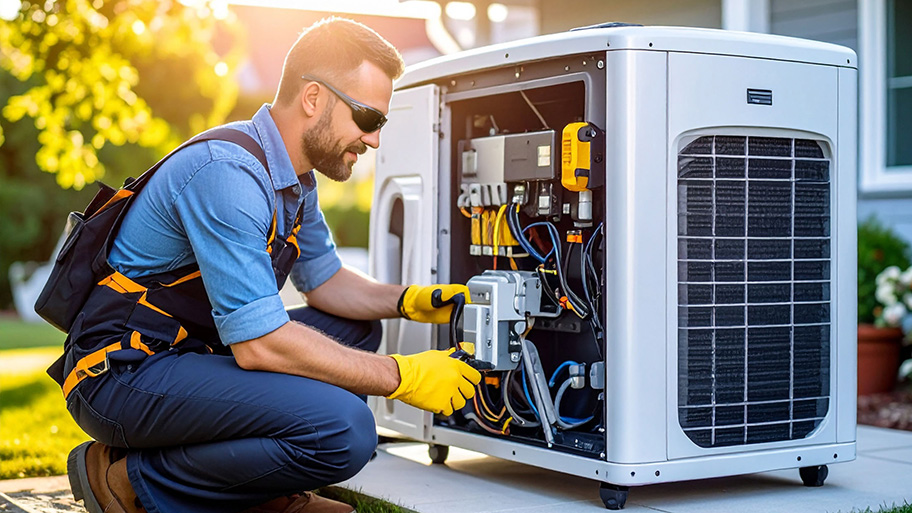
The average cost of a whole-house generator falls between $5,000 and $25,000. Keep reading to learn how much you can expect to spend.
A generator with no refills needed


Natural gas generators connect to an underground natural gas line for an unlimited source of fuel to power generators and other systems.
This setup is ideal for backup and whole-home generators that require significant fuel to power homes during an emergency.
Natural gas is inexpensive, but it’s only available in more populated areas, so it’s less likely to be an option for rural homes.
While reliable, natural gas generators may be limited in placement, affected by local exhaust laws, and disabled by events like earthquakes.
Large generators designed to provide power to a whole house (or a significant part of it) need plenty of fuel to work through power outages. Among the available options, natural gas generators are the only models that don’t require fuel refills.
Natural gas generators have a constant connection to fuel lines so they’re ready whenever your home needs power—as long as you have natural gas in your area. Here’s how natural gas generators work, and when to hire a generator installer for your project.

Home generators provide an alternate source of electricity during an electrical emergency. Natural gas generators use a permanent connection to a natural gas line as a fuel source and burn that gas for power.
This approach contrasts with other fuel options like propane or diesel, which need to be frequently refilled. Since this type of generator uses natural gas lines, they are typically a permanent installation made for frequent backup power or as an off-grid solution for cabins and similar spots.
A natural gas generator has a combustion engine, similar to a gas-powered car or lawnmower. This engine drives a motor, which spins an alternator to generate an electrical current. The current is adjusted to the correct frequency, voltage, and amperage to power a home’s electrical system.
But where does the fuel come from? These generators run on natural gas, an affordable fuel pumped from underground directly into homes—commonly used for gas fireplaces and furnaces. A natural gas generator requires a dedicated line connected to the main gas supply, ensuring a continuous fuel source.
To operate safely, natural gas generators include several key components. They have an exhaust system to vent gases after combustion and a cooling system to prevent overheating. When used as a home backup generator, they are typically connected to a transfer switch, allowing the home’s electrical system to seamlessly transition to generator power when needed.

You cannot buy refills or tanks of natural gas like diesel, propane, or other fuel options. Natural gas is only available if there’s existing infrastructure in your area. Natural gas lines are very common in more populated urban or suburban areas, and less common in rural areas. Your local energy utility company and local generator installer can provide more information about availability and installation.
Natural gas generators are very dependable as long as you have natural gas access, but there are a few factors to consider:
Installation location may be restricted, depending on where the existing natural gas lines are and accessibility of the connection.
Some states have laws limiting the exhaust that fuel appliances can produce. You may need to add a catalytic converter to the natural gas generator or meet other requirements to use one.
Natural gas lines are vulnerable to some natural disasters, notably earthquakes, which can disable service.
From average costs to expert advice, get all the answers you need to get your job done.

The average cost of a whole-house generator falls between $5,000 and $25,000. Keep reading to learn how much you can expect to spend.

Keeping on top of generator maintenance and repairs gives you extra peace of mind as a homeowner. Find out how much regular generator maintenance costs.

The cost to install a generator transfer switch depends on several factors. Our guide will help you understand all of the costs.

Depending on your needs, many types of generators can power your home, RV, or campsite. Check out our guide for the best types of generators.

Searching for a pro who can fix a generator? Consider hiring a generator technician or an electrician to handle the job.

A whole house generator can keep your home running during a power outage, but can it handle the energy demands of an air conditioner? Here’s what to consider.